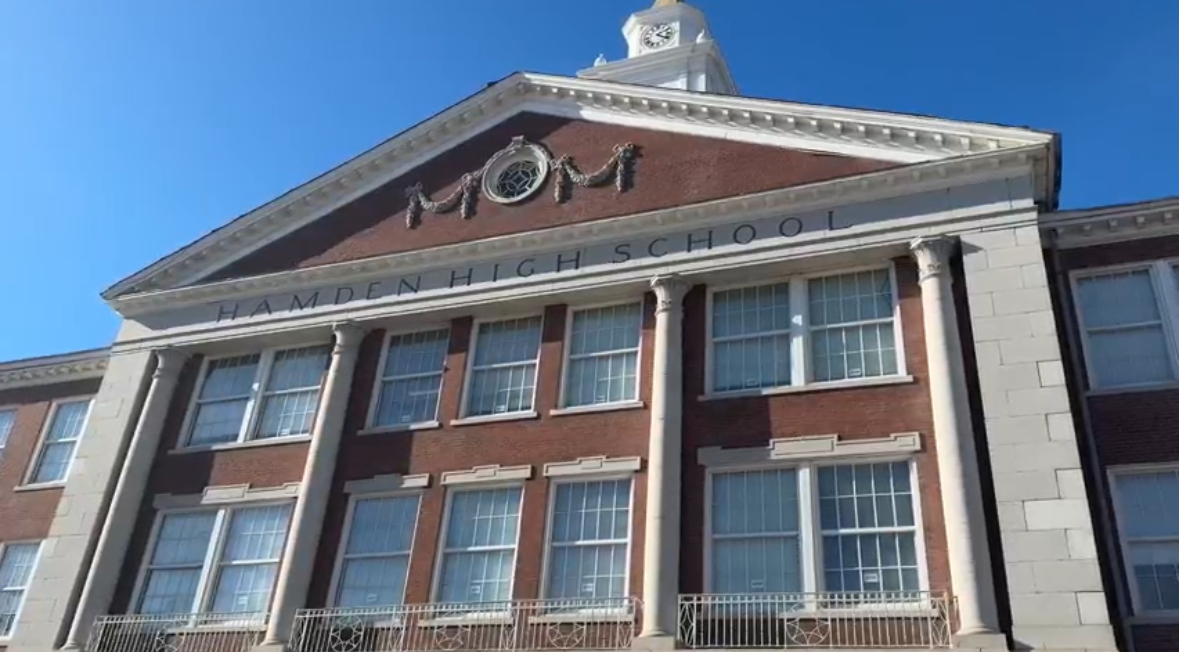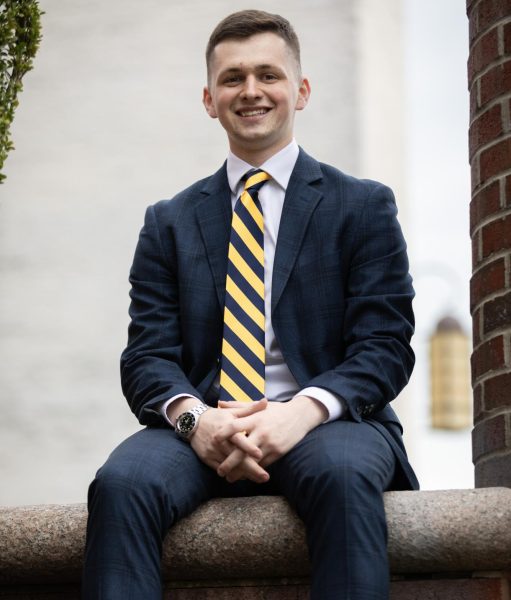Q30 Television and The Quinnipiac Chronicle held an exclusive interview with Quinnipiac University President Judy Olian for the fifth year in a row. Olian has been president at Quinnipiac since July of 2018.
During the interview, student media asked President Olian about the construction of the South Quad as the new residential hall is set to be open in August of 2024. Vandalism has continued to be an issue around campus, so much so that the university installed cameras in the Ledges resident hall.
In the conversation, Olian was also asked about former university administrators who have also been leaving in bunches in the last 15 months, as well as the restructuring of a vital office at Quinnipiac.
Since 2021, students have been required to live on campus for three years. Many students were curious about the future of off-campus housing surrounding the university.
Below is a portion of the conversation between Q30 Television and President Olian.
Connor Coar, Q30 Television President (CC): You released the 10-year plan back in January of 2021, with all of the “near-term” projects that have now been completed with the Recreation and Wellness Center, the two academic buildings and residential hall in the South Quad. What is the university’s plan for the next phase of the 10-year master facilities plan?
Judy Olian, Quinnipiac University President (JO): The next phase of our facilities planning exercise is ongoing. We always include input from our students. The key elements include the repurposing of some of the spaces that will have been vacated. For example, the business (Lender School of Business Center) building will be vacated, the South Quad will also to some degree replace a couple of the buildings that are especially older. We have a commitment to career and experiential learning that we may take into the current business school. There are some dominoes that will move into some other campus buildings like (the) CCE (Center for Communications, Computing and Engineering). We have a large commitment to upgrading our resident halls. We brought in new furnishing and upgraded three residence halls. On North Haven (campus), we’ve expanded some of our health science and nursing programs.
CC: This school year, there have been multiple instances of antisemitism on Rocky Top (student center), destruction of property in Ledges and arson in Dana this past fall semester. How is the university working to address vandalism and really poor behavior by students in the future?
JO: First of all, it makes me really sad that this has happened. It pains me. It’s as much an act against fellow students, staff and colleagues as it is against any other expression, whether it is against the university or not. I view the swastikas as vandalism and also hate speech, frankly. I view the vandalism in Ledges as disgusting behavior as much disrespectful of other students and other staff who have to clean up as it is against the university. I frankly can’t understand how a few students, and I assume this is few students, would inflict this among other students in their class, community or their home, and it is peoples homes. We have resorted to putting up cameras in public spaces.
It is not our preference, but I would really like to speak with the students who are doing that. Would you really behave that way in your home? Would you be so disrespectful of your parents? Any disrespectful acts against each other are heinous. So we are going to take whatever measures to identify the perpetrators. We have a code of conduct that clearly bans such behaviors.
CC: What was the decision process like to finally install cameras in the Ledges Residence Halls?
JO: The severity and the frequency of vandalism that was occurring recently made us say, “That’s enough.” We tried to put in measures that encouraged us to identify the perpetrators. I know that there are very few students somewhere on campus who are doing this.
CC: How do you find the balance between student privacy while also student safety when you are installing cameras into residence halls?
JO: We were very conscious of not putting it (cameras) into places that might be private. For example, corridors outside of rooms. But in any type of public space, there is not an expectation of the loss of privacy in these public spaces. As long as there is an expectation that these spaces are public, we know that we are conforming not just the law, but also normal expectations of where privacy is expected and intended and where it isn’t. We will not violate the expectation of privacy in other spaces.
CC: What is your vision for the university for five, 10, 20 years from now?
JO: I think it is really hard to think of such long-term horizons and everything is changing so rapidly now. We could think about 10-year facilities planning because there is such a long timeline to get buildings approved, signed and built. When you think about education, we are so tied to the marketplace which is changing so rapidly. I think Quinnipiac is going to be a residential campus for a long while to come because it provides so much to our students from living here and the living learning experience and all of the extracurricular opportunities. The 18 to 22 year-old student is not going to be the only student we serve. We will want to and need to cater to a variety of learners and such a variety of needs as people go through their careers.
You can watch the full 43-minute interview above or on our YouTube channel.




